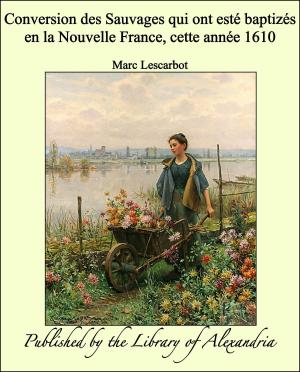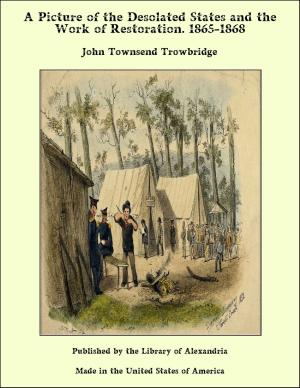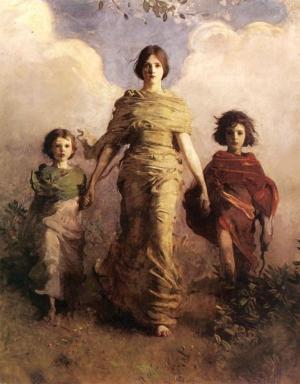A Little Girl in Old Detroit
Nonfiction, Religion & Spirituality, New Age, History, Fiction & Literature| Author: | Amanda Minnie Douglas | ISBN: | 9781465592002 |
| Publisher: | Library of Alexandria | Publication: | March 8, 2015 |
| Imprint: | Language: | English |
| Author: | Amanda Minnie Douglas |
| ISBN: | 9781465592002 |
| Publisher: | Library of Alexandria |
| Publication: | March 8, 2015 |
| Imprint: | |
| Language: | English |
When La Motte Cadillac first sailed up the Strait of Detroit he kept his impressions for after travelers and historians, by transcribing them in his journal. It was not only the romantic side, but the usefulness of the position that appealed to him, commanding the trade from Canada to the Lakes, "and a door by which we can go in and out to trade with all our allies." The magnificent scenery charmed the intrepid explorer. The living crystal waters of the lakes, the shores green with almost tropical profusion, the natural orchards bending their branches with fruit, albeit in a wild state, the bloom, the riotous, clinging vines trailing about, the great forests dense and dark with kingly trees where birds broke the silence with songs and chatter, and game of all kinds found a home; the rivers, sparkling with fish and thronged with swans and wild fowl, and blooms of a thousand kinds, made marvelous pictures. The Indian had roamed undisturbed, and built his temporary wigwam in some opening, and on moving away left the place again to solitude. Beside its beauty was the prospect of its becoming a mart of commerce. But these old discoverers had much enthusiasm, if great ignorance of individual liberty for anyone except the chief rulers. There was a vigorous system of repression by both the King of France and the Church which hampered real advance. The brave men who fought Indians, who struggled against adverse fortunes, who explored the Mississippi valley and planted the nucleus of towns, died one after another. More than half a century later the English, holding the substantial theory of colonization, that a wider liberty was the true soil in which advancement progressed, after the conquest of Canada, opened the lake country to newcomers and abolished the restrictions the Jesuits and the king had laid upon religion.
When La Motte Cadillac first sailed up the Strait of Detroit he kept his impressions for after travelers and historians, by transcribing them in his journal. It was not only the romantic side, but the usefulness of the position that appealed to him, commanding the trade from Canada to the Lakes, "and a door by which we can go in and out to trade with all our allies." The magnificent scenery charmed the intrepid explorer. The living crystal waters of the lakes, the shores green with almost tropical profusion, the natural orchards bending their branches with fruit, albeit in a wild state, the bloom, the riotous, clinging vines trailing about, the great forests dense and dark with kingly trees where birds broke the silence with songs and chatter, and game of all kinds found a home; the rivers, sparkling with fish and thronged with swans and wild fowl, and blooms of a thousand kinds, made marvelous pictures. The Indian had roamed undisturbed, and built his temporary wigwam in some opening, and on moving away left the place again to solitude. Beside its beauty was the prospect of its becoming a mart of commerce. But these old discoverers had much enthusiasm, if great ignorance of individual liberty for anyone except the chief rulers. There was a vigorous system of repression by both the King of France and the Church which hampered real advance. The brave men who fought Indians, who struggled against adverse fortunes, who explored the Mississippi valley and planted the nucleus of towns, died one after another. More than half a century later the English, holding the substantial theory of colonization, that a wider liberty was the true soil in which advancement progressed, after the conquest of Canada, opened the lake country to newcomers and abolished the restrictions the Jesuits and the king had laid upon religion.















